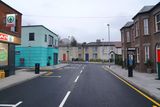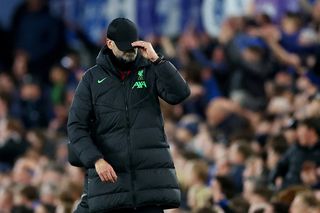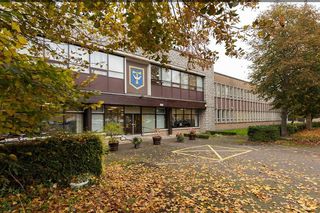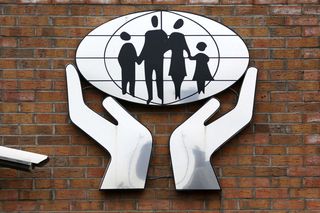Tanya Sweeney: 'RTÉ's autumn line-up lacking real (tele)vision'
Anna Geary, Brian Redmond, Lorraine Barry and Donncha O’Callaghan at the RTÉ autumn schedule launch yesterday. Picture: Colin Keegan, Collins Dublin
It's been a funny old year for RTÉ. Last October, it was revealed that the State broadcaster would receive €8.6m in funding from the 2019 budget after Director General Dee Forbes admitted that RTÉ was facing "urgent, substantial" problems. In more recent weeks, it was announced that the TV licence would be replaced by a more general 'household' charge; a development that has caused plenty of chagrin for the 'I don't even own a TV' faction.
So what to make of their new slate of autumn programmes, which is (according to the bumph) "impactful", with plenty of "star signings"? A quick glance at the new offerings and suffice to say, we're talking much of the same fare as before. Diversity is embarrassingly conspicuous by its absence.
You could throw a dart into the new season and hit an old reliable: Keith Barry. Claire Byrne. Doireann Garrihy. First Dates. Francis Brennan (working on a ship this time, for reasons best known to whoever came up with this guff).
Far from blazing a broadcasting trail at a time when it really needs to, RTÉ appears comfortable enough to play it safe and stay in the jet stream of other broadcasters. There is plenty of the parochial quirk that RTÉ is known and (sometimes) loved for. Yet any 'innovations' on their slate, sad to say, come a year after most other TV stations have tested the waters. Anyone looking for a big, controversial show to get right to the heart of a public conversation will probably be left wanting.
Among the station's big focusses for autumn is climate change. To hammer home the scale of the problem, RTÉ will devote an entire week in November to investigations, events and debate. Sounds great, but will this truly reflect the seismic shifts in the climate change narrative? Will it offer up a vision for change instead of reflecting back what we might already know?
The aforesaid "star signings" appear to be Jamie Heaslip, Donncha O'Callaghan and Michael Lynagh to the Rugby World Cup panel. There's a nod to RTÉ's commitment to balancing the gender disparity in sports journalism, with rugby captain Fiona Coughlan joining the commentary team.
Plenty of the usual suspects, of course, are staying put: The Late Late Show, Dancing With The Stars, The Ray D'Arcy Show and The Tommy Tiernan Show are all present and correct, as are Claire Byrne Live, Prime Time and The Late Debate. Safe pairs of hands - perhaps pre-Brexit isn't exactly the time to faff about with an untested entity in current affairs or talk shows. Still, it's a line-up that would benefit greatly from a shake-up.
RTÉ's drama and comedy output is as risk-averse as ever: instead of putting their full heft behind championing new talent, there will be a tentative testing of the waters instead with a selection of RTÉ/Screen Ireland comedy pilots and Storyland dramas. Certainly, it will give some newcomers a chance to show their shopfronts, but nothing says half-hearted enthusiasm like the word 'pilot'. Is it any wonder Irish TV's true new talents are migrating to podcasting, YouTubing and Channel 4?
Some drama co-productions have a whiff of promise about them. Dublin Murders, based on Tana French's crime novel series, stars Killian Scott, Tom Vaughan-Lawlor and Sarah Greene (British screenwriter Sarah Phelps has penned the scripts). Dead Still, a Canadian co-production about a Victorian-era memorial photographer, sounds intriguing and at least boasts the underrated Michael Smiley and newcomer Eileen O'Higgins in its cast.
There are flashes of the idiosyncratic niche programming for which RTÉ is famed. A documentary, Sirloin Steaks & Semtex, recounts the League of Ireland players who made the trip to Libya to play against the Libyan national side in 1989.
Ultimately, RTÉ's horsepower lies in its occasionally seismic journalism investigations: in the last year alone, revelations on the greyhound industry, ESB oil leaks and crèche facilities have gotten everyone talking. We can expect some more of the same. The Redress Board, where RTÉ returns to the stories behind Ireland's industrial schools, is likely to be essential programming.
All in all, it's a commendable output for a station with "significant, urgent" fiscal problems. Yet you can't help but wonder what could be if RTÉ really stuck their neck out and swapped predictably safe for controversial and conversation-starting.
Read more:
Join the Irish Independent WhatsApp channel
Stay up to date with all the latest news















